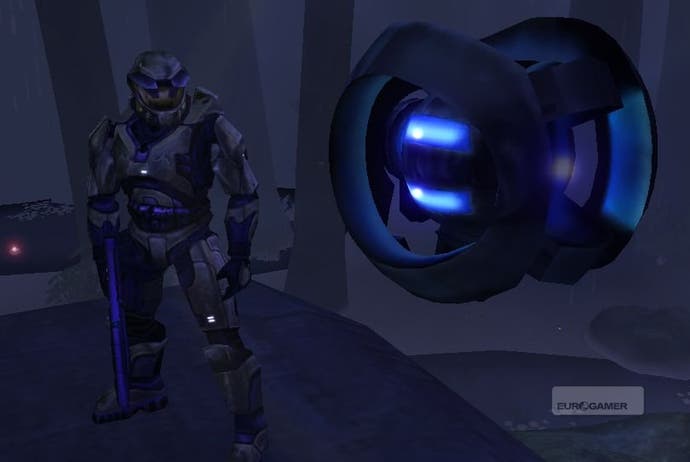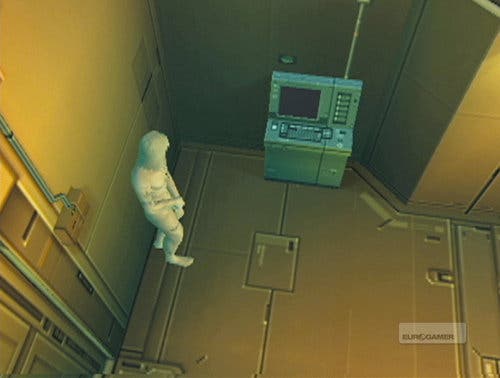Off the Map
Our tribute to the levels designed to confuse rather than guide.
Halo: Combat Evolved - 343 Guilty Spark
Another level very carefully placed to shake up players with some unexpected fear and tension, though Guilty Spark is different. Where Constantine's Mansion exists to trip the player up on their own assumptions and return them to the mental darkness where the game thrives, 343 Guilty Spark is there as an enforced diversion from the action or 'palette cleanser'. I stole that term from Epic, but I reckon they stole it from someone else so it's okay.
343 Guilty Spark also exists to introduce the Flood. As much as people might dislike the Flood, Bungie's reason for including them is fairly obvious. Being enemies with different attacks, weaknesses, appearances and barks they add more variety to the game, and later on when you encounter the three-way Covenant/Flood/Master Chief battles, they add a little more depth too.
This level's purpose then is to maximise the impact of the new enemy by taking what makes them special and amplifying it. In the case of the Flood, that means the fear and panic they cause. Unlike the Covenant, who demonstrate care for their own survival, the Flood are suicidal, angry and hungry and both look and sound like something you'd find in the vegetable drawer of an abandoned fridge.

Bungie therefore made Guilty Spark a level about exploring the unknown. Sent into a swamp, at night, to rescue a squad of marines that have dropped off the radar, the player has no idea what they're walking into or why there are no enemies to shoot. Confusion is applied carefully and bearably to the game by making a debut together with a trail of clues that let you know everything will be revealed soon.
As the player continues along with nothing to shoot, the tension increases, and when the Flood are finally revealed the player takes them in with every ounce of attention they can muster. The level is practically a catwalk for the new enemies, except with more stringy, vicious creatures who seek only to further themselves. Oh wait! Zing!
Metal Gear Solid 2: Sons of Liberty - Arsenal Gear
This all contrasts with the MGS2 surrealist madhouse that is your capture and transportation to Arsenal Gear, which exists to. Uh. Well.

Arsenal Gear's purpose is, I suppose, self-contained. Rather than shunning traditional level design as a tool of some sort, Hideo Kojima uses the hallucinatory innards of Arsenal Gear as a surrealist work with its own worth. To this day fans of the series are still trying to work out exactly what the segment means, which parts are canon and why all that strange stuff happens, not picking up on something Snake says to Raiden near the end. Let's give thanks to the OCD children of GameFaqs.com for allowing me to quote this exactly:
"Snake: The memories you have and the role you were assigned are burdens you have to carry. It doesn't matter if they were real or not. That's never the point."
That, right there, is Kojima saying that to try and decipher MGS2's surrealism is to miss the message.
For anyone who didn't play it, Arsenal Gear is when Metal Gear Solid 2's plot of effete terrorism, hostage-taking and bomb-disarmament breaks down. Your operation commanders start spamming you with nonsensical messages, you go from being naked to having both clothes and a bullet-deflecting katana in the space of one cut-scene, the game psyches you out with a fake game-over screen, you suffer a boss fight where you have to fight dozens of 100-foot tall robots and much, much more besides. And there's no solid conclusion to it all - the game ends with Snake giving Raiden (you) some dogtags with the player's real-life name and of birth on in a crowded city street.
